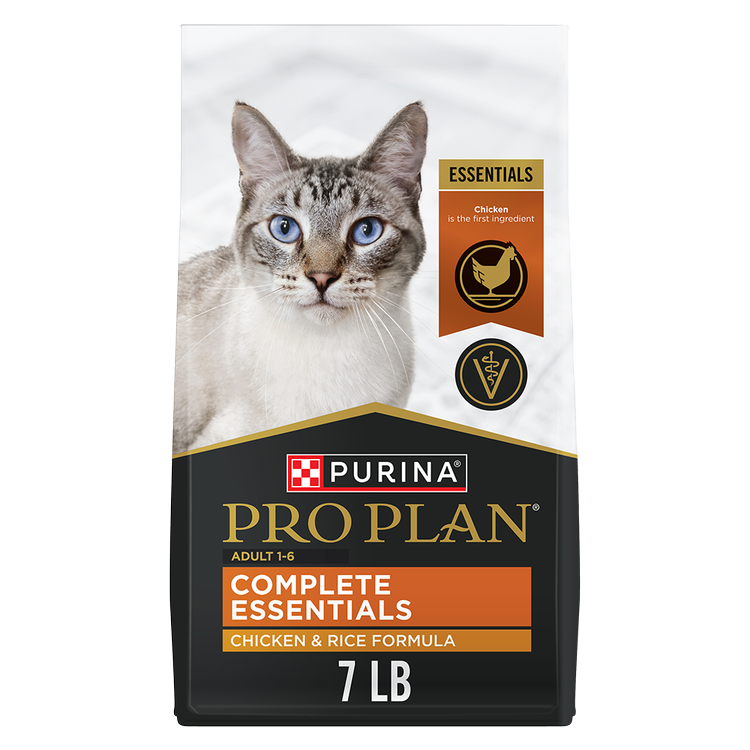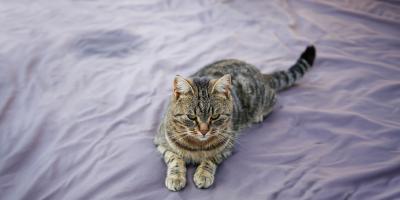Cat Spraying: Why Cats Spray & How to Control It


Cats spray to mark their territory. Although this is a normal behavior, spraying in the house is not something you want to encourage.
They may spray urine on walls, doors and other surfaces to mark their territory. Don’t get discouraged if your cat engages in this behavior; there are ways to stop cat spraying. Understanding the reason behind the behavior—and working with your veterinarian and/or behaviorist—can help in stopping it.
Cat Marking
Territory is very important for cats, especially in their home, where they feel safe and secure. Home is where their companions live, where they’re fed and where their toys are.
When they’re content, cats ‘mark’ their territory by using glands on their cheeks, above their eyes and over their chin.
When you see them gently rubbing themselves on your legs or the furniture, they are leaving their mark on a place where they feel the most comfortable. Since this type of marking doesn’t cause problems and humans can barely smell the scent they leave behind, it’s something most cat owners find endearing.
The good news is cat marking is a positive sign you have created a loving, comfortable home that makes your cat happy.
Why Do Cats Spray?
Spraying is another type of marking, usually performed outdoors where there’s more competition with other cats. Instead of rubbing their faces to mark their territory, they spray urine, which carries their own individual scent.
Cats Spraying Outdoors
Cats sometimes spray urine up against trees, hedges and fence posts when they’re outdoors.
They do this at nose height for other cats that might be passing by. This spray contains information about your cat’s age, sex, health, activity and where the boundaries of their territory are. If you think about it, the cat spray smell is like your cat’s calling card.
Marking their territory like this is intended to inform other cats in the area that this is their patch, to avoid any confusion and help prevent physical confrontation. Cat spraying can also communicate mating readiness to other cats.
Cats Spraying in the House
When cat spraying happens outdoors, it’s not really a problem. Chances are, you may not even be aware of it unless you see it happen.
It’s a different story if your cat starts to spray in your home, though. When this happens, it’s usually a sign your cat is anxious about something and feels a sudden need to mark their territory.
Cats who spray doorframes, curtains and window ledges may feel threatened by something they may have seen outside. If your cat starts spraying chair legs, beds and tables, it could be a sign they’re feeling insecure, so they are surrounding themselves with more of their own scent to increase their confidence.
Talk to your veterinarian if your cat has started to spray indoors and you’re not sure why. It’s important to rule out any potential medical causes, such as adrenal gland issues, before identifying any possible environmental reasons.
Your veterinarian will give you advice on how to prevent cat spraying and may refer you to a cat behaviorist who can help you work out the cause of your cat’s behavior change.
How to Stop a Cat from Spraying
Spraying indoors signals your cat is already feeling threatened, so the last thing you want to do is frighten them by reprimanding their behavior. If you shout at them for spraying, it can increase their stress levels, making them spray even more—which is certainly not what you want for your cat or your home.
If you’re wondering how to stop cats from spraying, the first step is to consider what might be causing them stress. For example, is there a new cat in the neighborhood? Have you and your cat moved recently, or has your cat’s environment changed in some way?
Here are some reasons your cat may be feeling anxious and steps you can take to make them feel more assured.
Your Cat May Feel Intimidated: Your cat may feel intimidated if there are lots of cats in the area. If your neighborhood has lots of other cats, make sure you have a secure cat flap (magnetic or microchip activated) that stops them from coming into your—and your cat’s—home. If you spot any repeat offenders trying to sneak their way in, try to shoo them away to discourage them from coming into your cat’s personal space. Also look to see if you can limit visual access to those outdoor cats from inside your house.
You Recently Gained or Lost Another Cat: Make sure your existing cat feels secure and knows their food, water, litter tray, bed and toys are readily available and won’t be taken over by your new arrival or removed after the passing of your other pet. You may need to put their toys and possessions in more than one location to reassure them. When adding another cat to your household, increase the number of litterboxes and toys to decrease conflict over these key resources.
You Got New Furniture, Redecorated or Moved: All these things can unsettle your cat and increase the chances of them spraying. To combat this, slowly introduce them to new additions and give them time to adjust. You can also try gently rubbing a soft cloth on your cat’s face to pick up their natural pheromones and wipe new furniture or unfamiliar areas with the cloth at cat height. This will spread their scent and help them feel more secure in their surroundings. Providing items designated for allowing them to spread their scent (beds, scratching posts, litter boxes, etc.) in these new areas or around new furniture can help.
Ask your veterinarian about synthetic feline pheromones. These pheromones can work similarly to your cat’s natural pheromones, which can be useful when dealing with stress-related problems.
What Are the Medical Causes of Cat Spraying?
Some cats spray indoors because they have a medical problem, so it’s essential to take them to your veterinarian to have them checked over.
For example, Feline Lower Urinary Tract Syndrome (FLUTS) is a common, treatable condition that can be potentially life-threatening if ignored. It usually causes blockage or partial blockage of the urinary tract, making urinating difficult or almost impossible.
The causes and treatments of FLUTS are very different from spraying, so it’s a good idea to speak to your veterinarian if you think their spraying may have a medical, rather than emotional, cause.
Cleaning Cat Spray
Cats will often spray the same area time and time again, so if you spot a pattern, test the color-fastness of the area, then clean the area thoroughly with a 10 percent solution of biological washing powder, rinse with cold water and allow it to dry. After this, spray with alcohol (available from your veterinarian or pharmacy) and allow it to dry again. You should now have a clean, smell-free area.
Find more about cat health and how to care for them by visiting our Pet Expertise and get advice from our pet experts.
Related articles

Earn myPurina Rewards with Every Purchase
Use your points for treats, toys, and gift cards with myPurina app.






